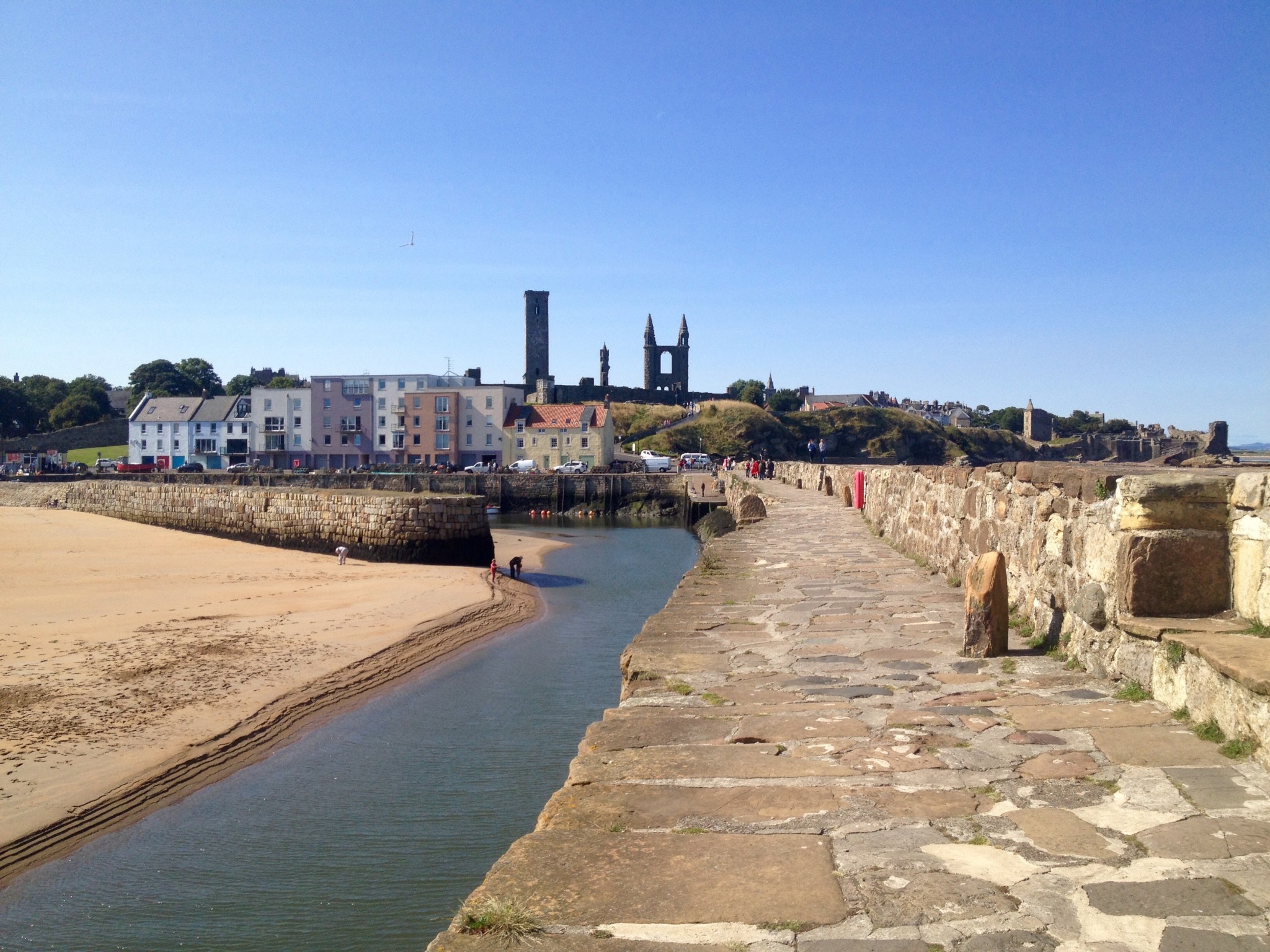After a month of William and Mary friends, American food and trips to Washington, D.C., I have finally returned to the University of St. Andrews for my second semester abroad. This semester promises to be a good one: I’m past that awkward stage of adjusting to a new school and now consider St. Andrews as much my home as the College. I was recently elected money editor of The Saint, St. Andrews’ student newspaper. My new modules cover topics like the anthropology of pirates and the culture of cubism. Spring break, although it is several months away, may take me to places I’ve always dreamed of visiting, including the Netherlands and Budapest. The list goes on.
Since I just began my first week of classes, I wanted to write a post about academics at St. Andrews. I’ve discussed this topic previously, but after a full semester of modules, lectures and tutorials, I have several new perspectives to add.
The biggest difference I’ve encountered between academics here and in the U.S. is the importance of finals. I thought finals week was stressful last year, but it was nothing compared to St. Andrews. I took three modules — social anthropology, English and art history — and wrote six essays for all of them combined throughout the semester. These essays, plus one art history test, made up about 50 percent of my course grades. The other 50 percent was determined entirely by my final.
In addition to carrying a much higher weight than finals at the College, exams at St. Andrews are held in a different environment. They take place in the gym or giant rooms in academic buildings, and the hundreds of students writing frenziedly in blue exam books are more reminiscent of high schoolers taking AP exams than American college students taking finals.
Since all of my modules are arts subjects, my finals consisted entirely of essays. This was similar to the rest of my coursework at St. Andrews but very different than last year, when even my English exam had multiple choice questions. Expectations for exam essays are different, too. Whereas my British literature exam at the College had six short reading passages to analyze, my Medieval and Renaissance exam asked one analytical question based on a passage and one general question. In order to do well on an exam at St Andrews, you need to know the works studied very thoroughly and read related literature rather than just study course notes and rely on writing skills.
As one of my exam scores showed, I still have some work to do before understanding the intricacies of British finals. With a new semester filled with infinitely more interesting classes, however, I’m confident that round two of exams will be far easier.
This semester, my modules focus on art, culture and politics from 1900 to now; ethnographic encounters; and drama: reading and performance. I’m very excited for all of these courses, especially since my modules last semester focused on less riveting topics like the theory behind structural functionalism and Old English texts.
I will admit that most of the classes I took at the College were introductory courses with 300-people lectures, but overall they were limited to the basic study of subjects like economics and psychology. I’m sure that upper-level courses cover topics as interesting as the ones I’m studying this semester (one friend told me she’s taking a course on children’s books), but I’m not sure I would be able to study these specific topics in such depth and with a European focus at the College. Overall, I still prefer the College’s academic style, but this semester I think I’ll finally be able to appreciate all that the academics at St. Andrews have to offer.

